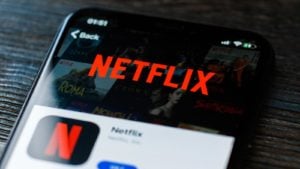There’s no hiding the truth: streaming stocks are on fire now right now. And with good reason.
Consumers across the globe are cooped up in their homes. And in the absence of being able to go out, people everywhere are looking for fun ways to entertain themselves. The best options? Streaming TV services. Video games. Streaming TV services. Board games. Streaming TV services. At home improvement projects. Oh, and streaming TV services.
Get the point?
Of all the at-home entertainment options, streaming TV is the cream of the crop. It’s the one thing consumers will keep going back to, over and over again, to entertain themselves at home.
That said, consumers have rushed onto streaming services over the past month — and investors have similarly rushed into streaming stocks.
Moreover, this strong performance from streaming stocks won’t end anytime soon. So it’s important to remember that:
- The linear to streaming TV pivot was already happening at a robust pace globally before the novel coronavirus. This pandemic has just accelerated an already strong trend.
- There remains ample room for streaming TV adoption rates to grow. Today, only about 25% of all internet households globally are subscribed to a streaming TV service. The U.S. streaming TV household penetration rate is close to 100%.
- Streaming TV services are subscription services, meaning today’s demand surge will turn into long-term revenue sources for these platforms.
All in all then, I see the coronavirus pandemic as a catalyst for meaningful, long-term out-performance in streaming stocks. With that in mind, some of the best streaming stocks to buy right now for big long-term gains include:
So, let’s dive in.
Streaming Stocks to Buy: Netflix (NFLX)

When it comes to the increasingly crowded streaming TV market, Netflix continues to be the best-in-breed platform out there.
That’s because Netflix has robust data and resource advantages.
When it comes to the “streaming wars”, it’s all about original content. The better original content a platform has, the more consumers will subscribe to that platform. And, when it comes to making original content, two things matter most: data and resources.
The more data a company has on what viewers like to watch and why, the better content that company can create which will appeal to viewers. At present, Netflix has years worth of viewing data on 170 million global subscribers. No one else in this space is even close to having a viewing data-set that large.
Concurrently, the more money a company can use to recruit top-shelf creative talent, the better content that company will create. So, because Netflix is bigger than everyone else in this space, they have an easier time justifying huge content spend. And as long as this remains true, Netflix will continue to have a bigger original content budget than everyone else.
Collectively, Netflix has more data and more resources than everyone else in this space. This should remain true for a lot longer. So long as it does, this company will continue to dominate the global streaming TV market, and NFLX stock will keep charging higher.
Disney (DIS)

Most of Disney’s business has been slammed by the coronavirus pandemic. Cruises have been shut down, theme parks and movie theaters have been closed and linear TV advertising has fallen off a cliff.
But, in the eye of the storm, Disney’s new streaming service — Disney+ — has a been a shining star.
Disney announced in early April that Disney+ crossed the 50 million subscriber mark — just five months after the service launched. That implies a robust 10 million new subscribers every single month, with big growth coming from both the U.S. and international markets.
The key to Disney+’s huge success? The huge, extremely valuable and widely popular treasure chest of legacy Disney content. All the Star Wars movies. All the Toy Story movies. The classic Disney films. The Marvel movies. This is the type of content that consumers are willing to pay up to have consistent, on-demand access to — and it’s what paves the path for Disney+ to become nearly as commonplace globally as Netflix.
Zooming out, Disney’s travel, parks, movies and advertising businesses will all bounce back. When they do, they will join a red-hot Disney+ business. And that coupling should drive years of meaningful out-performance in DIS stock.
Amazon (AMZN)

As I’ve said many times before, Amazon is the perfect stock to buy amid the coronavirus pandemic.
The rationale is simple. Everywhere consumers are spending more time and money, Amazon is there. Just consider:
- Consumers are shopping online more now. Amazon.com is the world’s biggest e-commerce platform.
- Consumers have increasingly pivoting towards grocery delivery and online grocery shopping. Amazon owns Whole Foods and AmazonFresh, one of the world’s leading online grocery delivery platforms.
- Consumers are playing and watching video games more during the pandemic. Amazon owns Twitch, America’s largest video game streaming platform.
- Consumers have also spent more time and money on streaming TV services. Amazon Video is the second biggest streaming TV service in the world, next to Netflix. Amazon also owns IMDb, which has its own streaming service, IMDb TV.
- Enterprises are increasing their investment in cloud infrastructure as they aggressively migrate their workflows, processes, and data to the cloud amid physical workplace closures. Amazon Web Services is the biggest infrastructure cloud business in the world.
In other words, Amazon is much more than just a streaming stock. It’s a stock built for the New Digital World — one wherein consumers shop online, play a lot of video games and watch streaming TV. And one wherein enterprises virtualize their offices.
Additionally, the shift to this New Digital World will only gain momentum over the next decade. As it does, Amazon’s e-commerce, streaming and cloud businesses will all roar higher. So will its digital ad business, which is built on the back of increasing engagement with Amazon’s digital platforms.
Overall, shares of AMZN stock will keep running higher over the next several years.
AT&T (T)

Telecom and media giant AT&T is lagging in the streaming wars. However, that’s about change in May 2020 when the company finally launches an all-in-one streaming platform with enough content firepower to make some noise in the market.
Specifically, in May 2020, AT&T is set to launch HBO Max. The platform will morph together two huge media treasure chests from HBO and Warner Media, and offer consumers content like Game of Thrones, Friends, DC Universe movies, and much more, all on the same platform, and all for just $15 per month.
Much like Disney+ has been a huge hit because of its treasure chest of legacy content, HBO Max will be a huge hit as well because its treasure chest of legacy HBO and Warner Media content. It will also be a big hit because HBO has developed a strong reputation for consistently producing strong original content, the sum of which will keep consumers coming back for more.
Yes, much like Disney, the rest of AT&T’s business is struggling amid the pandemic. In particular, the company’s linear TV business is likely having a rough time.
However, HBO Max offers this sleeping company its first mega growth catalyst in years. Then, only a few months later, the second mega growth catalyst in years will emerge, with the widespread roll-out of multiple 5G-enabled smartphones (including a 5G iPhone).
Collectively then, AT&T stock could finally “wake up” in the back-half of 2020 and surge higher on the back of huge streaming video and 5G catalysts.
Roku (ROKU)

Last, but certainly not least, on this list of streaming stocks to buy is Roku.
The streaming device maker is the purest play on the streaming TV boom. That’s because Roku doesn’t offer its own streaming service. Rather, the company is the “cable box” of streaming TV.
That is, the streaming TV world is becoming very crowded and complex. There are tons of streaming services out there, as well as plenty of subscribers. Someone needs to aggregate all that supply, match it with all that demand and create a unified, seamless marketplace connecting consumers to streaming services.
That’s what Roku does. And they are the biggest in the market.
Importantly, size matters here. In essence, Roku is just a marketplace. And in marketplaces, network effects benefit the bigger marketplace, since more demand draws in more supply, which draws in more demand. With respect to Roku, the bigger it gets, the more streaming services will have to launch through Roku — which will draw in more active accounts, and, in turn, lead to more streaming services.
Lather, rinse, repeat.
Over the next decade, Roku will continue to leverage network effects to turn into the undisputed cable box of streaming TV. The company will win over the lion’s share of ad dollars that flow from linear to streaming TV. Revenues and profits will roar higher, and so will ROKU stock.
Luke Lango is a Markets Analyst for InvestorPlace. He has been professionally analyzing stocks for several years, previously working at various hedge funds and currently running his own investment fund in San Diego. A Caltech graduate, Luke has consistently been rated one of the world’s top stock pickers by various other analysts and platforms, and has developed a reputation for leveraging his technology background to identify growth stocks that deliver outstanding returns. Luke is also the founder of Fantastic, a social discovery company backed by an LA-based internet venture firm. As of this writing, he was long NFLX and ROKU.
Luke Lango is a Markets Analyst for InvestorPlace. He has been professionally analyzing stocks for several years, previously working at various hedge funds and currently running his own investment fund in San Diego. A Caltech graduate, Luke has consistently been rated one of the world’s top stock pickers by various other analysts and platforms, and has developed a reputation for leveraging his technology background to identify growth stocks that deliver outstanding returns. Luke is also the founder of Fantastic, a social discovery company backed by an LA-based internet venture firm. As of this writing, he was long NFLX and ROKU.
